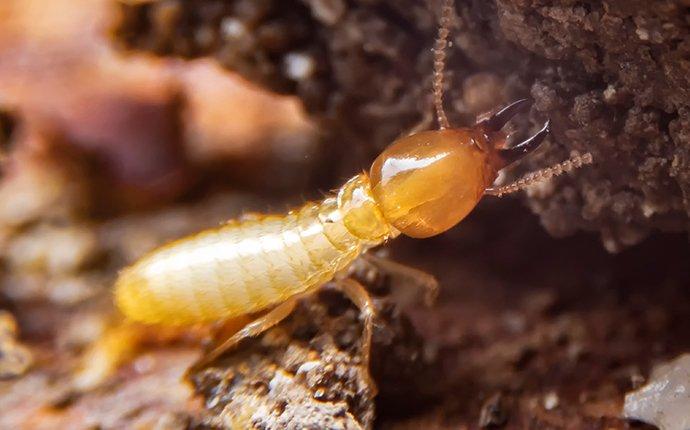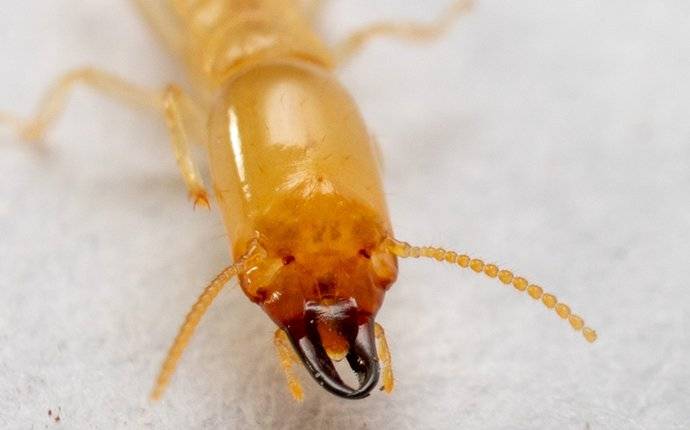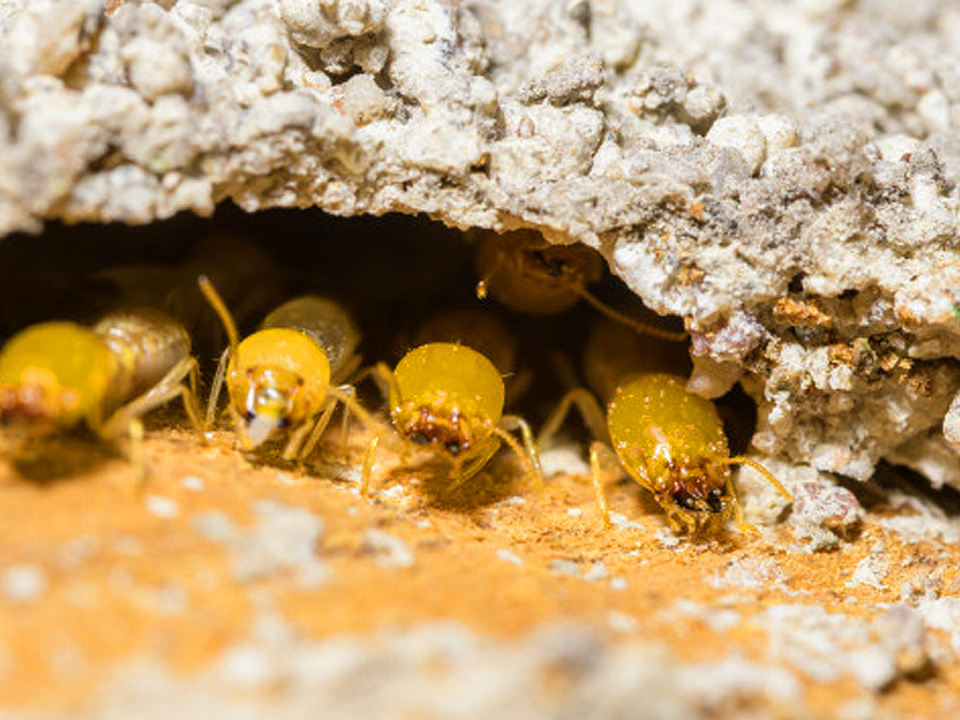Yes, termites can make noise, often producing clicking or rustling sounds when they communicate or chew on wood. These noises are usually very faint and may not be easily heard by humans without specialized equipment.
The Termites make noise for several reasons, and here are some of those reasons.
- Termites create noise to communicate within their colonies.
- The sounds help coordinate tasks like foraging and defense.
- Soldiers produce clicking sounds as a warning signal.
- Worker termites make rustling sounds while feeding on wood.
- The noises play a crucial role in termite social structure and survival.
Common Noises Associated with Termites

Have you ever wondered if termites, those tiny but destructive pests, actually make noise? In this Part, I’ll delve You into the world of termite sounds.
A. Detailing the different types of sounds termites can produce:
Termites are relatively quiet insects, but they are not completely silent. They communicate and make sounds through various means:
- Head Banging: Termites can click quietly when taping their heads against tunnel walls. These clicks are often too quiet for the human ear to detect.
- Vibrations: Termites communicate through vibrations, which can be heard as soft, rustling noises when they move through wood or soil.
- Soldier Alarm Sounds: Soldiers, the termite colony’s defenders, can emit a high-pitched, hissing sound when they feel threatened.
B. Research-based evidence on termite auditory abilities:
- Termites are highly sensitive to vibrations and can detect even faint sounds through their specialized organs.
- Studies have shown that they can perceive sounds in the range of 250-1,000 Hz, which is beyond the range of human hearing (typically 20-20,000 Hz). This ability helps them communicate and stay safe within their dark tunnels.
- Studies have also found that termites are particularly attuned to vibrations caused by potential threats, such as predators or disturbances to their tunnels.
C. termite sounds in different stages of their life cycle:
Termites go through various life stages, each with unique behaviors and sounds:
Queens and Kings: The reproductive members of the colony, the termite kings and queens, do not make any audible sounds. Their main job is to lay eggs and make sure the colony survives.
Swarmers: When termites are preparing to leave the nest and form new colonies, they produce rustling or buzzing sounds during their swarming flights.
This noise is a collective effort by the winged termites as they take flight to find a suitable place to establish a new colony.
In conclusion, while termites are not known for loud noises like some other pests, they do communicate and interact through subtle sounds and vibrations.
Understanding their auditory abilities can be crucial in detecting infestations and taking timely action to protect your property.
Factors Influencing Termite Noise
When considering whether termites make noise, exploring the various factors that influence their behavior and sound production is essential.
A. Environmental factors impacting termite behavior and noise production
Termites are highly sensitive to their surroundings, and environmental factors can affect their noise levels:
Temperature: Warmer temperatures typically lead to increased termite activity. For instance, termites tend to be more active and noisier during the spring and summer months when temperatures are higher.
Humidity: Termites require a certain level of humidity to thrive. High humidity levels can encourage their activity and potentially lead to increased noise production as they chew through wood.
B. Seasonal variations in termite activity and sound generation
Understanding the seasonal patterns of termite behavior is crucial:
Spring and Summer: These are the prime seasons for termite activity. As temperatures rise, termites become more active and may produce more sounds, especially if they are feeding or preparing to swarm.
Fall and Winter: Termites tend to slow down during the colder months. They may still be active inside their colonies, but their noise production decreases significantly.
C. Impact of termite species and colony size on noise levels
The type of termite species and the size of their colony can also influence noise production:
Species Variation: Different termite species have distinct behaviors and noise patterns. Some may be noisier than others. For example, subterranean termites are known to be relatively quieter compared to dry wood termites.
Colony Size: Larger termite colonies with more individuals are likely to produce more noise collectively as they work together to build tunnels, feed, and communicate.
In conclusion, while termites do make noises as part of their daily activities, these sounds are often subtle and can be influenced by environmental factors, seasons, termite species, and colony size.
Detecting Termite Noises
Detecting termite noise on time is crucial because it allows for early infestation identification and intervention. Timely detection can prevent extensive structural damage, reduce treatment costs, and protect property value.
It also helps prevent termite colonies from growing larger and potentially invading neighboring areas or structures.
So, in this section, I’ll show you how to detect termite noises.
A. Methods and tools for detecting termite sounds:
Acoustic Sensors: Specialized acoustic sensors, like microphones and listening devices, can pick up the faint sounds termites make. These sensors can amplify and record termite noises for analysis.
Vibration Detectors: Vibration detectors, such as seismographs, are sensitive to the vibrations caused by termite activity. These instruments can translate these vibrations into audible sounds or visual data.
Termite Detection Dogs: Some highly trained dogs can detect termite infestations by listening to the subtle noises produced by termites. These dogs can accurately pinpoint the source of termite activity.
B. potential signs of termite noise in and around structures:
Subtle Clicking or Rustling Sounds: Listen closely for faint clicking or rustling sounds coming from walls or woodwork. These noises may indicate termite activity within the structure.
Hollow-sounding Wood: Tapping on wood surfaces may reveal a hollow or papery sound, suggesting that termites have consumed the inner layers of the wood.
Mud Tubes: Termites often build mud tubes along the exterior of structures. These tubes serve as shelter and can amplify termite noises. Look for these tubes as potential indicators of termite presence.
Frass (Termite Droppings): Accumulations of termite droppings near infested areas may indicate active termite feeding and tunneling.
C. Importance of professional inspection for accurate identification:
Expertise: Pest control professionals are trained to identify termite infestations accurately. They can distinguish between termite noises and noises caused by other pests or structural issues.
Advanced Tools: Professionals use specialized equipment, such as borescopes and moisture meters, to detect termites even when they are hidden from view.
Comprehensive Inspection: A professional inspection thoroughly examines the entire structure, ensuring that no termite activity is missed. This comprehensive approach is crucial for effective termite detection and treatment.
Conclusion: Detecting termite noises can be challenging, but it is valuable in identifying and addressing termite infestations.
Utilizing specialized tools and methods and seeking professional assistance ensures accurate identification and effective management of termite problems, ultimately safeguarding your property from potential damage.
Debunking Myths about Termite Noise

You might have heard various myths about termites and their noises. But all myths aren’t true, so here I’ll set the record for debunking these myths and their actuality.
- Common misconceptions about audible termite activity:
Misconception –1: Termites are always noisy
Fact: Most termite noises are very faint and require specialized equipment to detect them, making them generally silent pests.
Misconception –2: Termite noises are easily distinguishable
Fact: Termite sounds can be mistaken for other pests or environmental factors, leading to misidentification.
Misconception –3: Audible termite activity means a severe infestation
Fact: Audible activity may occur even in the early stages of infestation, and early detection of the noise can prevent significant damage.
B. Correcting misattributed sounds to termite infestations:
Sound of Running Water: Some people mistake the sound of water running through pipes for termite noises.
This is a common misattribution, as the water’s hissing or rushing sound can be similar to the hiss made by soldier termites when threatened.
House Settling: The creaks and pops you might hear in your home are often attributed to termites. In reality, these sounds are usually caused by the natural settling of the building, temperature changes, or the expansion and contraction of materials.
FAQs
What does termite noise sound like?
Termite noises are often described as faint clicking or tapping sounds. These sounds are a result of their activity within wood structures.
Can I hear termites in my walls?
Typically, you won’t hear termites inside your walls without using detection devices because their sounds are very soft and often drowned out by other household noises.
Is termite noise a sign of an infestation?
Yes, termite noise can be a potential sign of an infestation, particularly if it is audible and ongoing.
Do all termite species produce noise?
No, not all termite species produce audible noises; some are silent pests, while others may produce faint sounds.
Can I prevent termite noise in my home?
No, you can’t prevent termite noise specifically, but you can prevent the termite infestation that causes it through regular inspections and effective termite control measures.
Can termites hear human sounds?
No, termites cannot hear human sounds as they lack ears or auditory organs.
Do termite noises pose health risks to humans?
No, termite noises do not pose health risks to humans; they are primarily a sign of potential property damage rather than a direct threat to health.
How can I detect termite noise?
Specialized equipment, such as acoustic detectors, can be used by pest professionals to listen for termite noise within walls or wooden structures. These devices can help confirm termite activity in your home.
Conclusion
So, finally, termites do make noise. It is crucial to understand this fact as it emphasizes the importance of early detection and seeking professional pest control.
By staying informed and proactive in termite prevention, homeowners can prevent severe damage and financial loss caused by these silent destroyers.
Regular inspections, proper maintenance, and prompt action are crucial to safeguarding your property. Stay informed, stay vigilant, and protect your home from the costly consequences of termite infestation.

